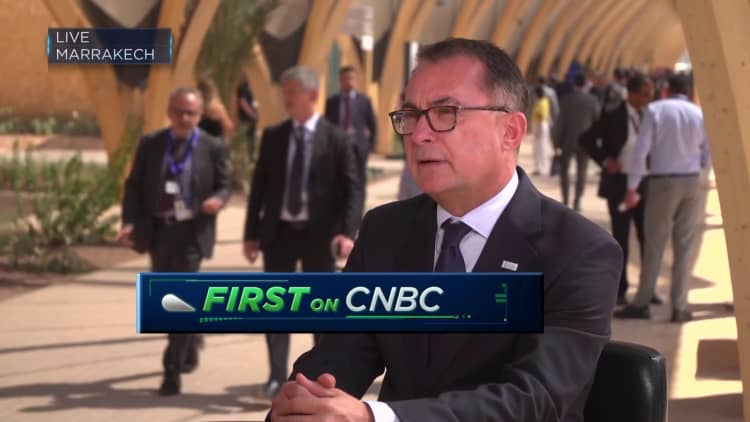Germany is not the sick man of Europe, Joachim Nagel, the president of Germany's central bank, told CNBC on Wednesday, while acknowledging that growth is "not good for this year."
Speaking from the IMF World Bank annual meeting in Marrakech, Morocco, Nagel said we shouldn't compare Germany's current economic situation with the period when it was last described as "the sick man." Analysts first coined the moniker in 1998 as the country navigated the expensive aftermath of a post-reunification economy.
"It's a completely different, different situation," Nagel said. "There are some structural changes necessary, but if you take, for example the labor market, we are still running the economy on full employment, more or less."
"I believe there is that understanding that we need to do something, but we are not the sick man of Europe," he added.
Debate has sparked over whether Germany should once more be described as the sick man, after Europe's largest economy was predicted to be the only major European economy to contract in 2023.
"It's not good for this year," Nagel said, "[but] for next year growth is coming back."

Germany's central bank, the Bundesbank, forecasts the country's economy will grow by 1.2% next year, up from the 0.3% decline it sees for 2023.
The International Monetary Fund holds a slightly more pessimistic view, estimating that Germany will experience "continued weakness" in its growth, and that its economy will expand by 0.9% in 2024, according to data released Oct. 10.
The IMF's growth forecast for Germany lags behind the 1.2% average for the wider euro zone.
Inflation beast is 'tamed'
Price rises in Germany slowed more than expected for the month of September, with inflation, which is harmonized for comparison with other EU countries, rising 4.3% against the previous year, federal statistics office data showed.
The number is the lowest monthly figure since Russia's full-scale invasion of Ukraine and was pushed down by a below-average increase in the price of energy products.
"The inflation story is going in the right direction," Nagel told CNBC. "The beast is still there, but, to a certain extent, we have tamed the beast."
The inflation rate remains well above the euro zone's 2% target and is likely to stay that way for several years, according to a press release by the Bundesbank in June.
In the next two years, inflation will be 3.1% and 2.7% respectively, the statement said.


